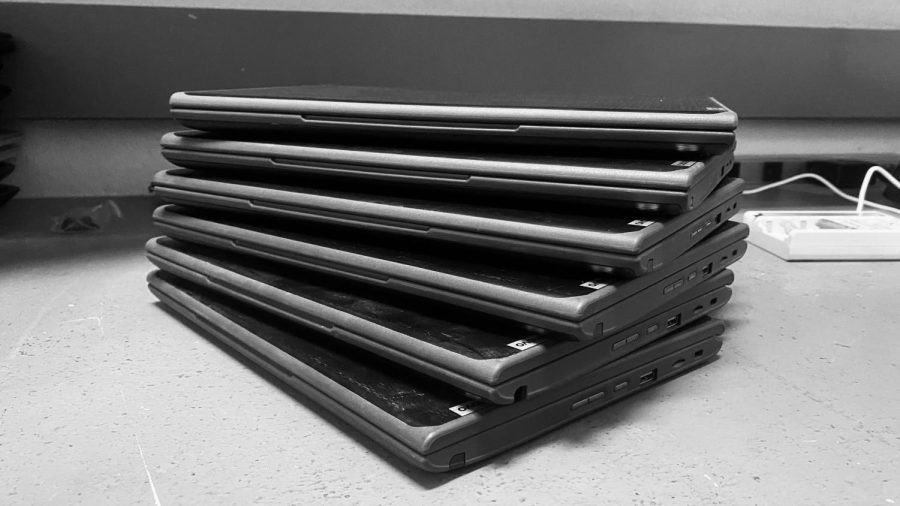Pali Proposes to Provide Computers to Every Student
June 6, 2023
Although this plan is still pending approval, the Pali administration proposed to provide all students with school-issued laptops at the beginning of the 2023-24 school year. This “one-to-one” plan aims to meet future state testing requirements and create a more equitable learning environment, while also allowing teachers to monitor students during class activities.
If the one-to-one program is implemented, students will be required to use a laptop provided by the school in class. Students will keep the school’s devices until graduation and are allowed to take them home and keep them over breaks. The plan will ensure the standardization of all school computers of an upgraded model, which will be newly purchased for the 2023-24 school year.
According to Pali administrators, the one-to-one plan is expected to cost between $390,000 and $490,000. Sophomore Anya Stutz said that she believes the one-to-one plan will not be beneficial because it does not optimally allocate school resources.
“I think [the school] should put funding toward something that will actually better the school in the future,” Stutz said. “I’ve already spent a lot of money on my own personal computer, and I’d rather have my own computer, which I like and know well.”
While Stutz is not fully supportive of the one-to-one plan, she does understand Pali’s goal to create a more equitable school environment.
“People who have bought their own computers have certain advantages over those who did not because of the quality and capabilities of their computer,” Stutz said. “Students being provided with the same resources and technology is an equitable solution to this.”
English teacher Stephen Berger said that he is in favor of the shift to school-issued laptops as it could help him gain greater control over his class.
“Knowing that I don’t have to show students how to do things in multiple different ways will take up less time and greatly benefit my teaching,” Berger said.
According to Pali administrators, California plans to mandate increased state testing that will affect Pali next year. Student-bought devices cannot be used for these tests due to their inability to be directly monitored by proctors. On the other hand, the school-provided computers can be monitored and attempts to prevent cheating, therefore allowing for more accurate measurements of student abilities.
Currently, students are permitted to purchase their own laptops to use during class. Students who don’t have access to their own computer are provided a Chromebook from the school. The combination of personal computers and school-issued chromebooks creates a diverse selection of computers among Pali students.
“Inconsistency of devices causes a lot of problems when it comes to standardized testing,” Berger said. “[With one-to-one], [tools] like Lockdown Browser will be a lot easier.”
With the transition to school-provided laptops, teachers will have the ability to directly monitor and control students’ screens. According to Pali administrators, the main use of school bandwidth is attempts to log onto Snapchat, followed by Anime on Youtube. The new laptops should be able to limit students from accessing some of these applications, and teachers’ newfound control will encourage students to stay on task.
“It feels like an invasion of privacy,” Stutz said. “I don’t think the execution is going to go very well because there are so many students that it’s just going to be really disruptive.”
“Teachers will be spending a lot of time monitoring what students are doing on their computers rather than actually teaching the class,” Stutz added.
However, Berger said he believes that the ability to monitor students’ progress will positively impact his students.
“Knowing that when I have students who are having trouble using their computers appropriately in class, that there can actually be some consequences for this and some control will be very helpful,” Berger said. “Hopefully having a little bit more control will help them develop better habits as students.”













